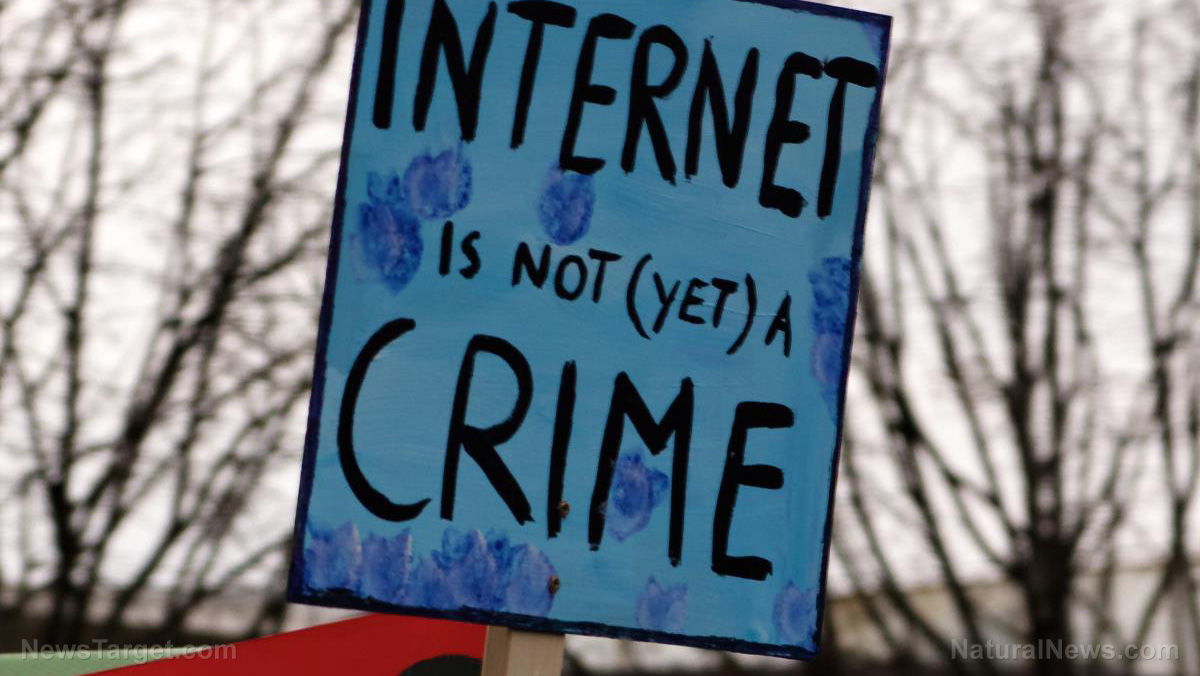Quitting Facebook can significantly improve your mental health, researchers conclude
01/16/2019 / By Zoey Sky

When you’re bored at home or work, you probably entertain yourself by browsing Facebook. After all, it lets you see what your friends, old classmates and new acquaintances, or your relatives are up to. But did you know that quitting Facebook, whether temporarily or permanently, can help you destress?
According to the results of a 2015 study, titled “Quitting Facebook Leads to Higher Levels of Well-Being,” browsing Facebook can make you more stressed.
The study, which was published in the journal Cyberpsychology, Behavior, and Social Networking, was conducted by researchers from the University of Copenhagen.
The link between your Facebook activity and stress levels
For the study, Danish researcher Morten Tromholt recruited 1,095 volunteers who were separated into two groups: one who promised not to use Facebook for a week and a control group that used it as usual.
The experiment, which lasted for one week, set out to determine if regular Facebook use negatively affected a person’s well-being. The researchers compared data from the treatment group who took a break from Facebook with data from the control group.
The findings showed that only 87 percent of the group who had to quit the social network made it the full week. The volunteers who kept their word and didn’t use Facebook for the whole week reported a higher level of happiness than the control group.
After the one-week experiment, 88 percent of the treatment group shared that quitting Facebook made them happier, compared to 81 percent from the control group. (Related: Try a temporary social media detox! Quitting Facebook reduces stress.)
The researchers were also worried about the rest of the findings, which showed that:
- Facebook users are 55 percent more likely to feel stressed.
- About 39 percent of Facebook users have a greater tendency to “feel less happy than their friends.”
- At least four out of 10 of users “envy the apparent success of others.”
On the other hand, the results of the study also showed that:
- The people who went on a Facebook “detox” had less difficulty concentrating on their tasks.
- The participants from the treatment group said that they “felt like they wasted less of their time” on social media.
- The volunteers who took a break from Facebook were 18 percent more likely to “feel present in the moment.”
The researchers concluded that going on a Facebook detox had a two-fold beneficial effect on a person’s mental health: It can help increase your life satisfaction, and make your emotions “more positive.”
The team of scientists added that the effects of a Facebook detox were more noticeable “for heavy Facebook users, passive Facebook users, and users who tend to envy others on Facebook.”
Tips for going on a Facebook detox
If you want to try going on a Facebook detox to improve your mental health, follow the suggestions below.
- Deactivate your accounts. This prevents you from checking Facebook when you feel the urge to get updates on your friends, and it lets other people know that you’re on a detox.
- Uninstall all social media apps on your phone and gadgets. Doing this will disable the app alerts and notifications that are linked to social media addiction.
- Block all social media sites on your computer, laptop, or devices. This ensures that you won’t be tempted to check Facebook even if you don’t have the app installed on your phone.
- Try another hobby instead of spending time on Facebook. Whether you’re on Facebook for only 10 minutes or several hours daily, there’s no denying that Facebook eats up time that you could be spending on other worthwhile activities. After you’ve uninstalled Facebook on all of your devices, spend your free time on hobbies that can teach you new skills or engage your brain in arts and crafts, reading, or sports.
Visit Mind.news to read more articles about the benefits of a social media detox.
Sources include:
Tagged Under: bad technology, concentration, destressing tips, envy, Facebook, focus, Glitch, happiness, mental health, mind body science, Psychology, Social media, social media detox, social networks, stress, stress relief














